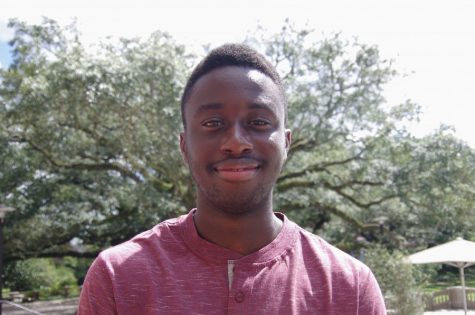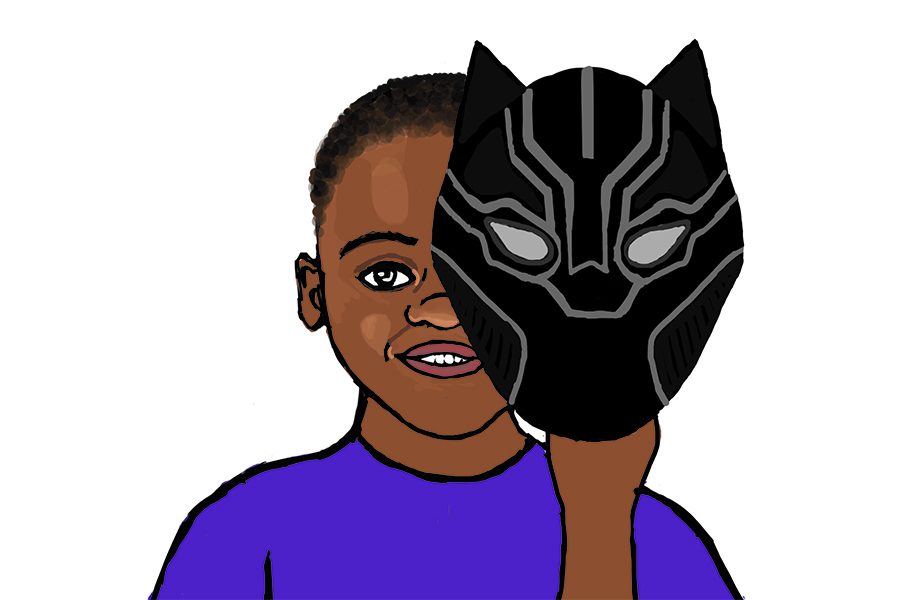A superhero of our own: What “Black Panther” means to us

Last Friday, Marvel Studios released “Black Panther,” the 18th film in the expanding Marvel cinematic universe. Marvel’s newest hero is a regal monarch protecting a prosperous nation. Possessing a fierce intellect and formidable physical abilities, he is a warrior and a chieftain, a statesman and a sovereign. He is also undeniably, unapologetically black. Featuring a character strongly rooted in African tradition, “Black Panther” embraces its unique identity, escaping tired clichés and depicting the triumph, not tragedy, of blackness.
The film, set in the fictional nation of Wakanda, draws upon the richness of African culture. Everything from the exquisite braids, knots and dreadlocks to an intricate coronation ritual continually reminds the audience of the cultural heritage in which both the characters and setting are inextricably steeped. Such motifs, a rarity in Hollywood, are empowering.
Happy Black Panther Day! Shout out to everyone who pulled out their special box of African clothes and fabrics looking for something dope to wear to the theater. #BlackPanther #BlackPantherSoLit pic.twitter.com/Zx7jCncW7K
— Akilah Green (@akilahgreen) February 15, 2018
For African-Americans, such agency in cinema has historically been absent. Whether through minstrel shows or as subservient mammies, autonomy over our lives, over our stories, has been denied to us. Undoubtedly, we have witnessed strides in representation. Black actors have won critical acclaim, and stories portraying black lives have resonated at the theater and box offices alike.
“Black Panther,” however, remains of unique significance. Often, a black character’s race has held little thematic weight, instead serving as a tokenizing depiction of diversity. Other times, black representation in film has been limited to tales of our victimization. Such films are undoubtedly necessary, documenting a painful past in which our suffering has been matched only by a steely resolve. Nonetheless, when the range of our experiences in cinema is so circumscribed, blackness becomes cheapened, admired for its resilience but never its strength.
With an all-star cast, esteemed director and $200 million budget, “Black Panther” imparts a new hope to the black cinematic consciousness. For 134 minutes, blackness is jubilantly celebrated, not simply withstanding the world but standing boldly in its face. Gone is a constant need for self-justification, perpetually reacting to an oft-hostile world. In its place emerge soldiers, scientists, priests and kings: all boldly, beautifully black.
#BlackPantherSoLIT: These students at Ron Clark Academy just found out they are going to see Black Panther. Watch their reactions + RT to spread the joy! pic.twitter.com/Oc5SAjwbQz
— COMMON (@common) February 3, 2018
To some, the hype surrounding “Black Panther” may seem odd, or even unnecessary. Much could be, and has been, written about this movie’s potential implications for increased diversity in Hollywood, both in acting and creative roles. This is no small matter. This explanation, however, is by itself inadequate.
It does not speak to the struggle as a child to find an empowering hero sharing your big lips and nappy hair. It does not account for the sense of inferiority furnished by reading a comic book, searching in vain for your reflection. It does not detail the necessity of submerging your identity beneath the mask of heroes inexorably removed from your experiences. And it fails to capture the stutter and sigh as you grapple with a nagging self-hatred borne of these experiences.
Representation matters. This means not only the personnel involved but the tales portrayed as well. Today, millions of moviegoers will wear their African prints with pride, sauntering into the movie theater with swagger. Afterward, they will leave Wakanda, but with a newfound confidence, emboldening them to scale buildings and stare down a barrage of bullets. Therein lies the movie’s meaning, its magnificence. That is what “Black Panther” means to us.
This is an opinion article and does not reflect the views of The Tulane Hullabaloo. Nketiah is a sophomore at Newcomb-Tulane College. He can be reached at [email protected].
Your donation will support the student journalists of Tulane University. Your contribution will allow us to purchase equipment and cover our annual website hosting costs.




Leave a Comment